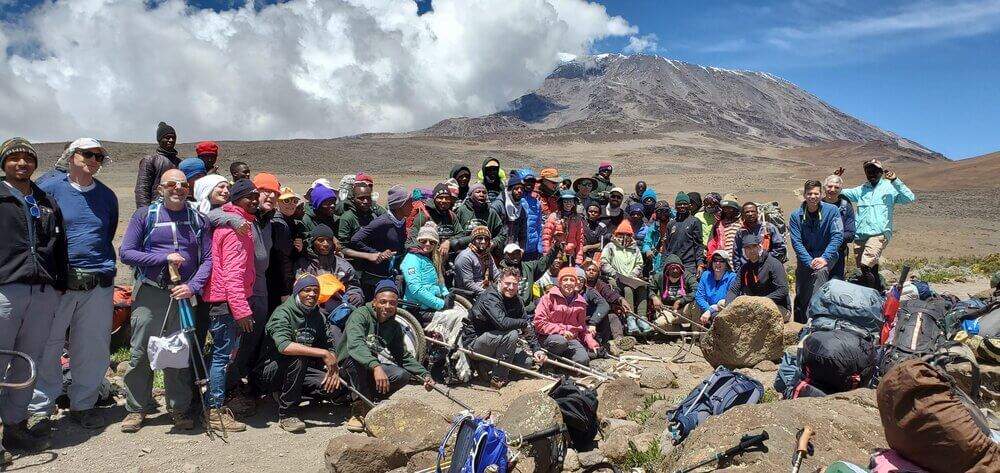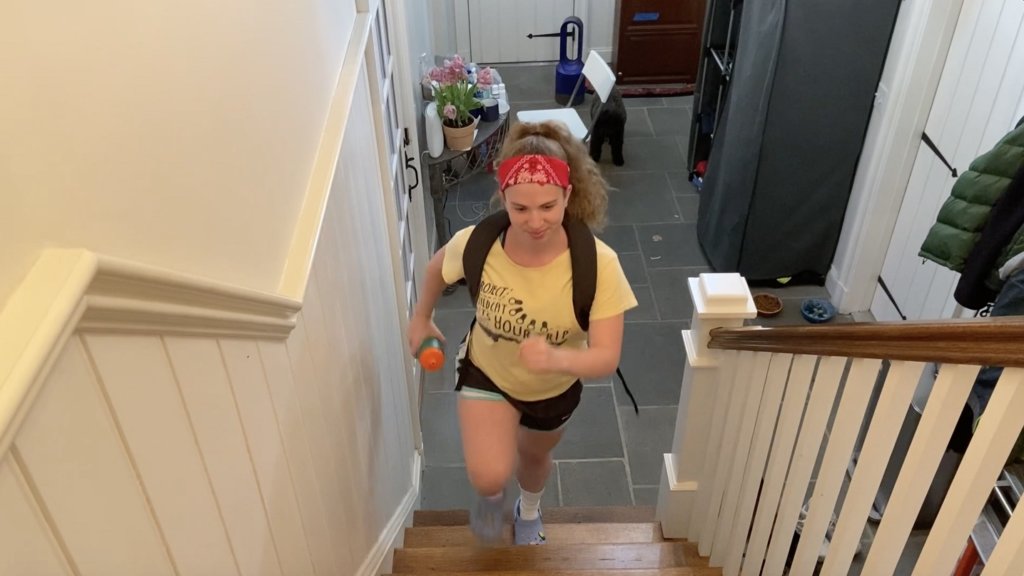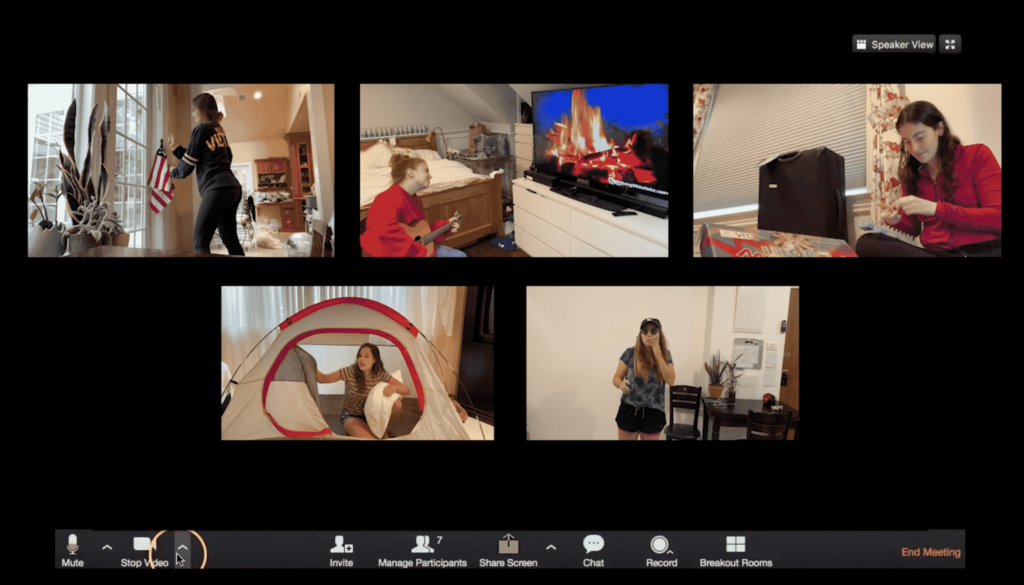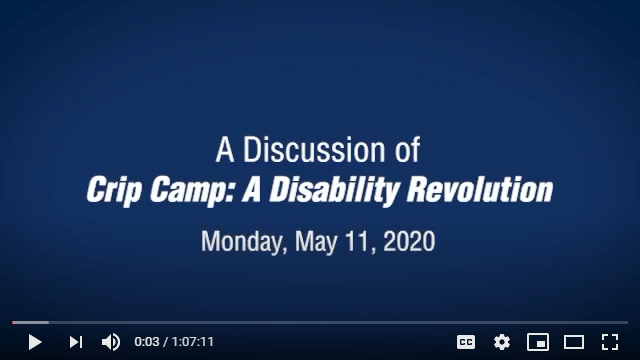Original Article Published on The Flyer Blog
My colleague and friend Jamie Lassner, executive director of Friends of Access Israel (FAISR), recently heard a number of people using the phrase, “I feel paralysed” as they cope with trying times posed by COVID-19. Lassner’s lifelong friend, Alan T. Brown, who has been a wheelchair user since he became paralysed as a teenager 33 years ago – and who has an incredible sense of humor – remarked, “Welcome to my life!
In fairness, what can people without paraplegia or quadriplegia possibly know about day-to-day life for a person who is paralysed? After nearly two weeks of climbing Mount Kilimanjaro, the famed 19,341-foot mountain in Tanzania – an experience that included not showering or using flush toilets, and hiking through the night in the cold and snow to reach the summit on the final ascent – 23 hikers came to know their four fellow climbers living with paralysis very well.
This past February, about a month before Covid-19 changed the lives of so many, a delegation of 27 climbers with different abilities from across the United States, Israel and Tanzania participated in the strenuous, multi-day, heavily-supported climb to benefit Friends of Access Israel (FAISR). FAISR is an organisation that promotes accessibility, inclusion and respect for people of all abilities around the world. FAISR’s collaborative partner, Access Israel, was founded just over 20 years ago in Israel.
Climbing Kilimanjaro is no walk in the park. It is a bucket list item for many people. Friends wondered how my fellow hikers and I were training – especially since many of us live in New York City, with little access to high elevations for training. They wondered, though they may have been shy to ask, how people who cannot walk could possibly climb Africa’s highest mountain.
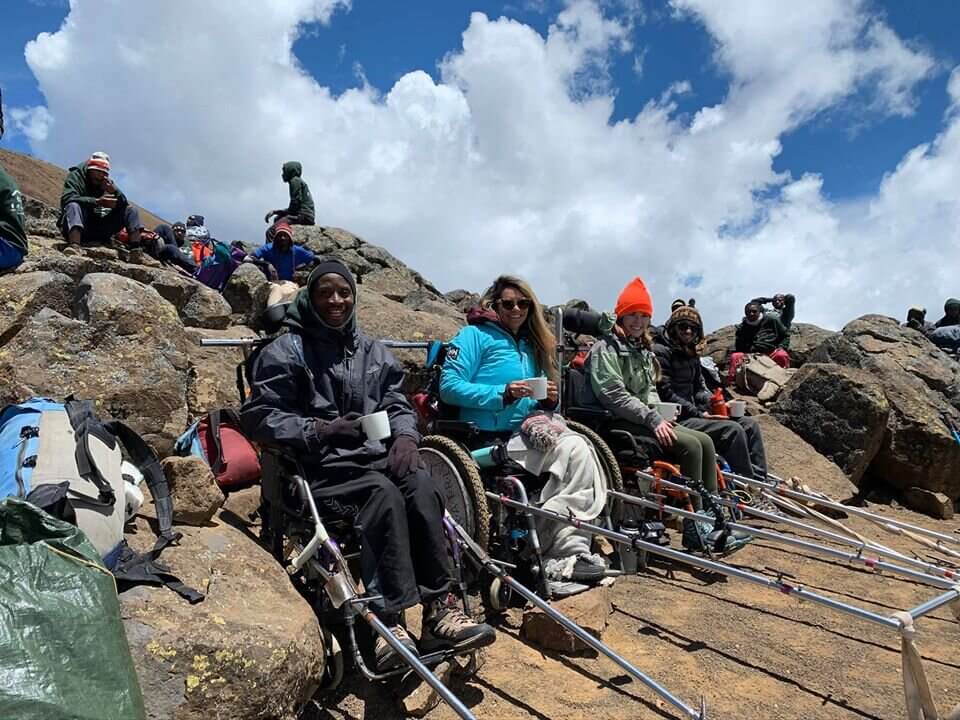
To start, never tell a woman who travels the world alone, dressed in her signature “The Journey of a Brave Woman” jean jacket, that something is impossible. Marcella Marañon, a Peruvian-born woman with paraplegia and who has an amputated foot, is simultaneously gentle and tough. She regularly shares experiences with accessibility, from Peru to India to Israel, on her very active social media sites.
Starla Hilliard-Barnes, a twice-paralysed participant (yes, you read that right!), also refuses to be defined by her disabilities. She was selected as Ms. Wheelchair Montana in 2014 and became the first wheelchair user to compete in the Mrs. Montana pageant in 2016. She is also the founder of Moving Forward Adaptive Sports (an organisation that enables differently abled individuals to engage in adaptive recreational activities) and the charity, Gifts of Love (which brings holiday presents to individuals with disabilities, veterans, individuals in hospital and families in need). Starla was accompanied by her husband, Shannon Barnes, on the expedition. “The last day I was in pain but just tried to smile. I just tried to stay positive. That was me, happy and smiling the whole time.”
“[Friends] wondered, though they may have been shy to ask, how people who cannot walk could possibly climb Africa’s highest mountain.”
Arnon Amit was paralysed in a car accident during his Israel Defense Forces (IDF) army service. Arnon flew to Tanzania with fellow Israeli, Omer Zur, founder of Paratrek – the company that created the durable ‘Trekker’ chair used by the paralysed participants and their extensive support teams to ascend the mountain. Arnon’s next challenge is riding on horseback with two friends from Israel’s southernmost to northernmost points. The journey was scheduled for April but will be rescheduled due to Covid-19.
Arnold John had spent his life watching others in his Tanzanian village ascend and even serve as porters on Kilimanjaro expeditions. This gentle 44-year-old paralysed father of three finally received the opportunity to climb the famed mountain himself with the FAISR delegation.
The group of climbers were supported throughout the journey by three cooks, 11 guides and 70 porters. Porters carry all participant clothing and sleeping bags, as well as food, water and cooking supplies. Cooks provided kosher meals both at the huts and along the route. Daily mileage ranged from 3.1 miles on the acclimation days to 13.7 miles during the final midnight-to-sunrise ascent to the summit.
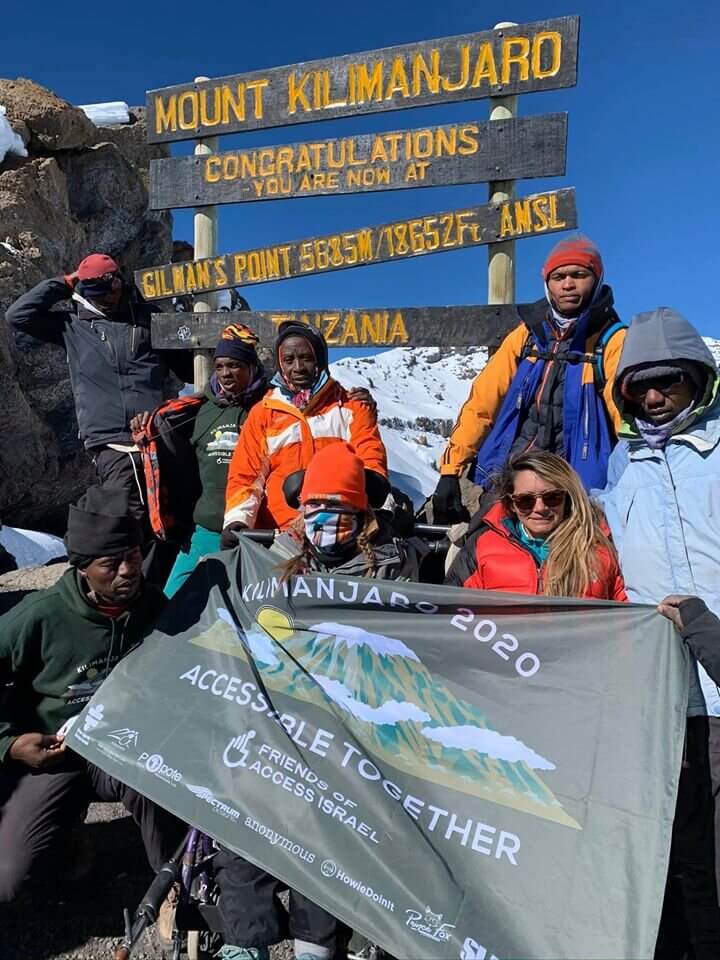
Paratrek’s founder, Zur, summed up what I suspect the entire group felt during this experience: “ascending the peak of Kilimanjaro is a dream come true, not because of the mountain … The dream that we fulfilled is to see this group – people with and without disabilities, and major ones – climbing up together as a group; as people who see each other as equals.”
Everyone returned home as friends and equals, with countless memories, dozens of photos and videos, strong bonds and an appreciation that we all have abilities beyond our disabilities. None of the trip participants speak of feeling paralysed; they speak very fondly of their new friends who happen to be paralysed.
Thank you Marcela, Starla, Arnon and Arnold for being such great teachers!
